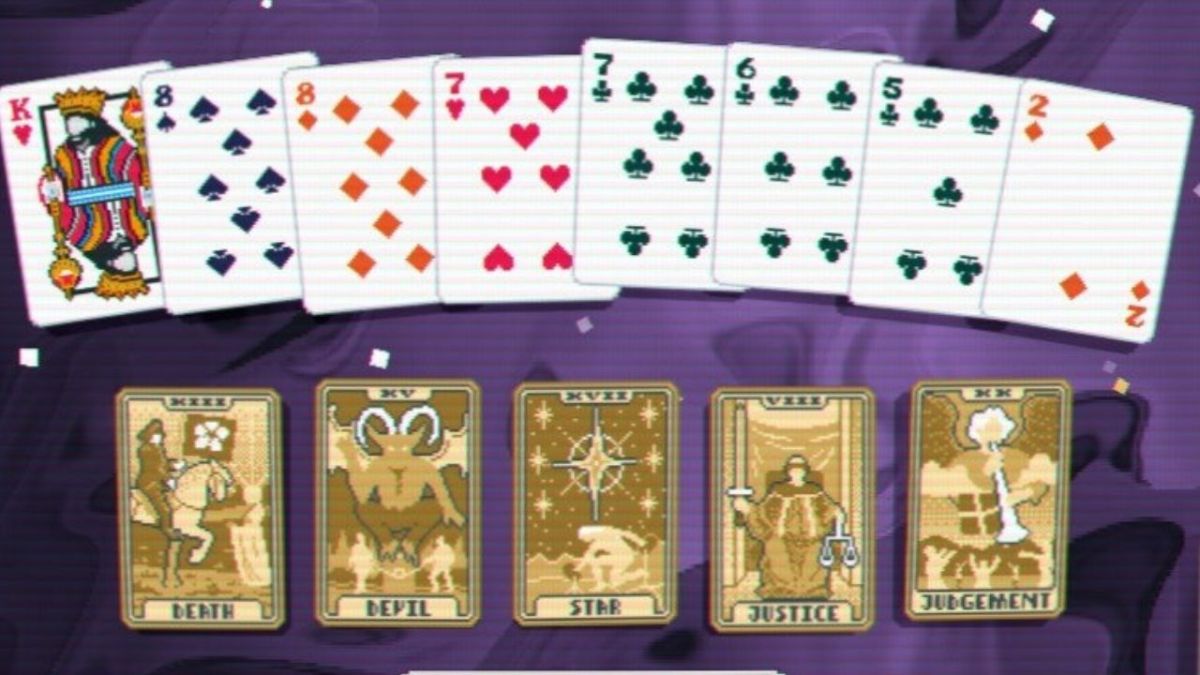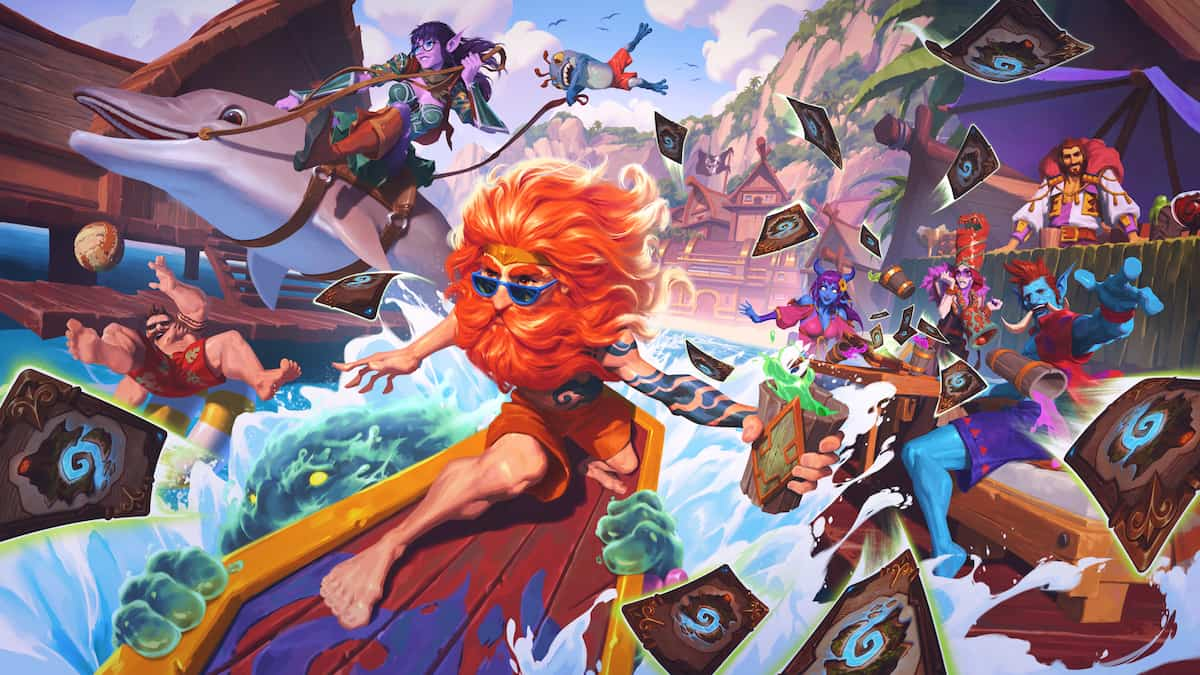Lots of words are wasted trying to find the Next Great Esports title. It’s an odd pastime considering a game’s overall popularity is often the deciding factor, not it’s value as a competitive platform itself. But that doesn’t stop people speculating on what could be the next big thing.
Prismata probably won’t be it, but that doesn’t mean it shouldn’t be. Or could be, now that the project narrowly survived its harrowing Kickstarter campaign ending on Saturday, earning the $140,000 Canadian required to fund the game only just.
Lunarch Studios introduces the title as “an energetic online game that distills real-time strategy down to its purest form, and removes the ‘real-time.’”
An outpouring of support from the online community got Prismata back on track.
But a later line is probably a better way to sum up the experience: “Think ‘turn-based StarCraft’, but without a map. Or, think of Hearthstone with workers and build orders instead of decks.” A CBC article calls it a combination of chess and Magic: The Gathering.
Those are surprisingly apt descriptions. You use resources generated from workers to build units described by a base set of cards and a randomly selected addition to that base set, using resources to produce better units and tech buildings with the ultimate goal of smashing your foe by overpowering his defenses. The board is evenly set to open every game, like chess or StarCraft, but the random additions guarantees each individual match will have its own unique outcome.
The game spawned from the attempts of co-creators Elyot Grant and Will Ma to create a deckbuilding game with no randomness. They believed in the concept so much that they dropped out of their PhD programs at MIT in 2013 to pursue their dream full-time. They’ve also dropped the deckbuilding aspect of the final product. But they certainly haven’t added any randomness.
Randomness is one of those touchy topics that keeps cropping up in Hearthstone. The recent Goblins vs. Gnomes expansion pack added a plethora of cards with random effects, something that irked many competitive gamers who believe randomness gets in the way of determining who is a better player. Game director Eric Dodds believes randomness keeps game situations from getting stale. Without randomness—card effects or even simply drawing from a deck—many game situations become rote to experienced players.
That’s a potential problem Prismata may experience once players truly master it. But the shuffling of the additional units and buildings available in every match makes sure no game is truly the same.
And that lack of true random elements is something that makes Prismata so powerful. The only factors separating the two players are who goes first and their individual skill levels. It’s a fairly simple game concept that plays out in stunning complexity and variance, much like chess.
“Think of Hearthstone with workers and build orders instead of decks.”
That’s the recipe for a rock solid competitive title—and dare I say, it esports title.
Lunarch certainly thinks so. It’s marketed the game in a unique way—by hosting Hearthstone tournaments. The Blizzard game is nothing short of an esports phenomenon, quickly becoming the leader in the digital card space through its ease of access but intense competitive scene. It makes sense to try to attract attention from the kind of players you expect to like your game, though it’s rare to see a company do so in such a direct way, by actually funding an endeavor for a direct competitor.
The first Prismata Cup, in July, saw German player Peter “Gaara” Stevanovic win $1,500 of a $2,600 prize pool. In September, Aleksandr “Kolento” Malsh took the second edition of the event, earning him $1,000.
Malsh also won the first Prismata Alpha Tourney, an invite event featuring some of the biggest names in Hearthstone, including Andrey “Reynad” Yanyuk, Jeffrey “SjoW” Brusi, and Jeffrey “Trump” Shih. Octavian “Kripparrian” Morosan met Malsh in the tournament final, showing off one of the matches and giving his approval of the game in a video chronicling the experience.
The game’s certainly tickled Malsh and Morosan’s fancy. This weekend, to promote the end of the Kickstarter, the pair participated in the Prismata Global Challenge. Malsh competed against the three highest rated players in Prismata—Timex, Will, and Dbelange—with Morosan hosting the tournament alongside Elyot Grant. Malsh lost to Dbelange in the final.
It’s marketed the game in a unique way — by hosting
Hearthstone
tournaments.
There’s a lot that Prismata lacks right now. It doesn’t have any of the slick visuals of Hearthstone, or the endearing utterances of the Innkeeper, the game’s ever-present commentator. It doesn’t have the polish an experienced AAA game developer puts behind it. It isn’t targeted towards a casual audience. But the mechanics of the game certainly appeal to a certain type of gamer: Those who appreciate strategic depth.
Naturally as a multiplayer title the game is developed with competition in mind. But Prismata contains a number of features and depth of features often overlooked in the digital card genre that would make any StarCraft pro feel at home. Prismata features an in-depth replay system that allows players to replay matches turn-by-turn. It has economic graphs straight out of a game like StarCraft. Instead of just the simple point-and-click interface of Hearthstone, Prismata also provides hotkeys that let players play cards with the click of a button, speeding up play. That isn’t a big deal on some game settings, but with a robust turn timer in place, it can become significant in big macro games.
And there will be plenty of big macro games, using the StarCraft parlance. Despite both players playing from the same hands, the number of strategies within each individual game still vary, as evidenced by Morosan’s match above. He makes a gamble to boost his economy while maintaining pressure with the one-shot attack of the Antima Meteor and it pays off, beating Malsh’s mid-game oriented strategy.
The game is slowly growing a following as its exposed to more and more people. It’s cropped up on a number of popular streams on Twitch during the final days of the Kickstarter, including Morosans.
But it hasn’t always been smooth sailing for Lunarch.
The game’s already been on life support once. After spending thousands to attend the Toronto game expo to promote Prismata, founder Elyot Grant lost a list of information garnered from hooked attendees. Grant relieved his frustration on one of the few outlets he could anonymously vent, Reddit. When Reddit detectives discovered the identity of the stricken developer, they took action.
An outpouring of support from the online community got Prismata back on track, increasing the playerbase and spurring funding in the Kickstarter. The Prismata subreddit itself is burgeoning in size, and reads a bit like the StarCraft one, with threads discussing build orders, tournaments, and of course, the pending Kickstarter.
Grant credits the Reddit bump for saving his game. Jumps in Kickstarter funding directly coincided with organic hits on Reddit. But as one commenter said, Grant and company should be proud of what they accomplished—there’s plenty of games that get a little Reddit bump, but never capitalize on it. Prismata managed to do so despite being a game that isn’t traditionally marketable based off its visuals or other fluff thanks to two reasons: there’s actual substance to the title, and the earnestness of Lunarch’s CEO.
They believed in the concept so much that they dropped out of their PhD programs at MIT.
The Kickstarter has officially reached its funding goal, with 3,783 people donating the $140,000 Canadian asked to keep the project moving. That means the game will move to the next stage, pushing it past alpha and beyond.
Still, that’s a long way from becoming the next big thing. Prismata can certainly use some work, like maybe an update to its visuals, if it wants to compete with the big boys. And that probably isn’t its destiny. The game’s depth and complexity is certainly appealing to many gamers, but probably not to as large an audience as something as accessible as Hearthstone.
But that’s okay. Prismata is what it is, and that’s an incredibly slick and strategically complex title, one that appeals to the kind of player who doesn’t enjoy the thrill of getting lethalled by a Ragnaros with five minions on the board.
Image via Prismata/Kickstarter






Published: Dec 22, 2014 12:22 pm